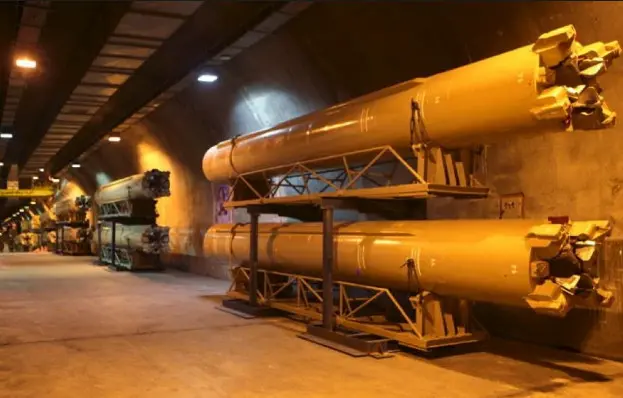U.S. Senators John McCain (left, R-AZ) and Charles Schumer (D-NY) chat during a press conference on bipartisan framework for comprehensive immigration reform on Capitol Hill, in Washington D.C., capital of the United States, Jan. 28, 2013. (Xinhua/Zhang Jun)
U.S. President Barack Obama on Tuesday officially unveiled his immigration reform proposals in a highlighted speech in Las Vegas, Nevada, which marked his first public push in the second term over the long-term divisive issue.
Now is the time
"Now is the time," said Obama in a speech in Del Sol high school, trying to generate public support and push lawmakers to fix the "broken immigration system."
The president laid out a comprehensive and ambitious package to overhaul the immigration system in a bid to give earned citizenship to young illegal immigrants who were brought to the country as children, as well as awarding green cards to foreign young high-end workforce.
There are estimated 11 million illegal immigrants in the United States, who have been, as the president put in his speech, "woven into the fabric of our lives." Obama's proposals to tackle the illegal immigration issue include preventing more from coming into the country by strengthening border security and providing those already in the country an earned path to citizenship.
Obama vowed to push on immigration reforms during his re- election bid last year and won over two thirds of Latino voters. In his first term, he didn't push hard for major legislative solutions to the country's immigration policies. Yet he did launch a program to stop deporting some young immigrants during a tight campaign last summer, an effort that was believed to further boost his support among Latino voters.
Obama's comprehensive package also includes goals to "staple" green cards to foreign graduate students educated in the United States with advanced degrees in science, technology, engineering and mathematics (STEM), and to create a "startup visa" for job- creating foreign entrepreneurs. KICK THE BALL TO CONGRESS
Obama applauded a bipartisan group of Senators' announcement of a blueprint to guide immigration overhaul Monday.
"We need Congress to act on a comprehensive approach that finally deals with the 11 million undocumented immigrants who are in this country right now," said Obama, "The good news is that -- for the first time in many years -- the Republicans and Democrats seem ready to tackle this problem together. Members of both parties, in both chambers, are actively working on a solution," said the president.
"And yesterday, a bipartisan group of Senators announced their principles for comprehensive immigration reform, which are very much in line with the principles I've proposed and campaigned on for the last few years," he said.
The group of eight senators, including top-ranking Democrats and leading Republicans on immigration reform like veteran Senator John McCain and Hispanic Senator Marco Rubio, announced their framework of principles to guide the immigration reform at a news conference on Monday.
Their principles also included "creating a tough, but fair path to citizenship" for illegal immigrants currently living in the United States.
However, the comprehensive immigration proposals are well expected to hit major opposition from the Republicans-led U.S. House.
In his speech, Obama acknowledged there would be "rigorous debate" about the details in coming weeks, but stressed that Congress should recognize that "the foundation for bipartisan action is already in place."
"And if Congress is unable to move forward in a timely fashion, " Obama said, "I will send up a bill based on my proposal and insist that they vote on it right away."
Jacob Vigdor, Professor at Duke University, said both Democrats and Republicans now have clear incentives to address the immigration reform again due to the growing percentage of the electorate and thus influence of Hispanic voters.
"In a very real sense, the immigration problem has actually solved itself, thanks to demographics and the weak economy," said Vigdor.
"What's ironic is that immigration is actually less problematic now than it has been for decades. The flow of immigrants across the U.S.-Mexico border has slowed to a trickle," he said, noting that the largest immigration nation will never again witness migration waves as intense as the past quarter-century.
 简体中文
简体中文




